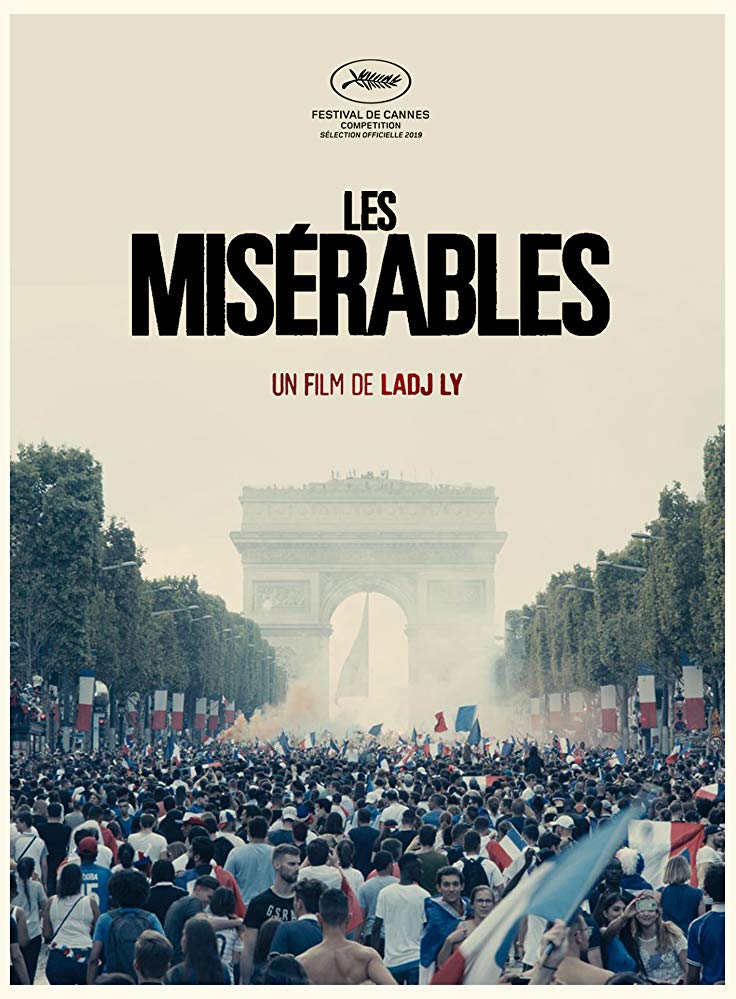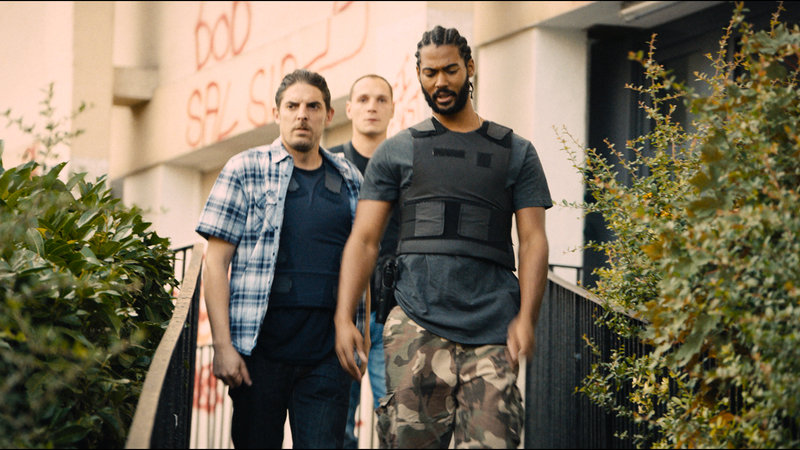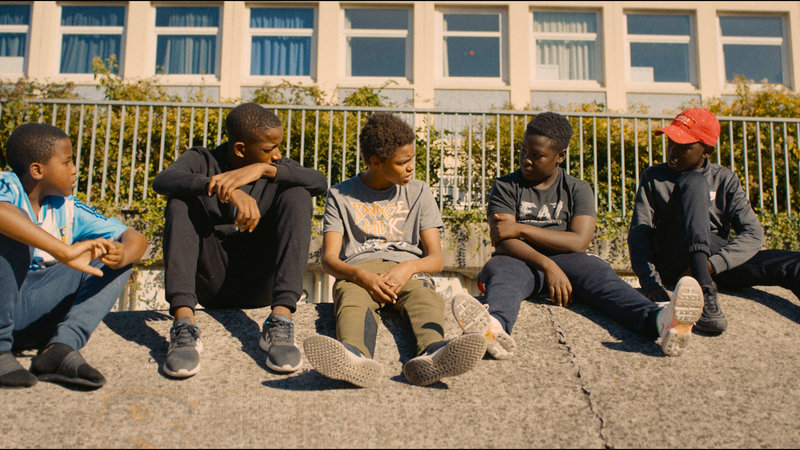NZIFF 51 Film Review: Les Misérables, Directed by Ladj Ly
Inspired by the Paris suburb riots of 2005, Les Misérables captures the cynicism, indifference, and desperate humanity of three anti-crime unit officers patrolling the streets of Paris, in a relentlessly tense and unsettling film by first-time feature director Ladj Ly. Oxford Lamoureaux reviews for The 13th Floor.
 Stéphane (Damien Bonnard) is a police officer, transferred from the French countryside to Paris, where he joins the Street Crime Unit alongside the outwardly confident yet sensitive Gwada (Djibril Zonga) and the confronting, cynical Chris (Alexis Manenti), who immediately displays his burning desire for personal dominance and control of his subordinates.
Stéphane (Damien Bonnard) is a police officer, transferred from the French countryside to Paris, where he joins the Street Crime Unit alongside the outwardly confident yet sensitive Gwada (Djibril Zonga) and the confronting, cynical Chris (Alexis Manenti), who immediately displays his burning desire for personal dominance and control of his subordinates.
The trio spend much of the film’s runtime on the streets, where their job is largely focussed around maintaining a police presence in the grim Montfermeil district of Paris, infamous for its violent and semi-lawless suburb, Les Bosquets. Aggravation and tension are present from the film’s opening scenes – the Champs-Élysées filled with screaming, vibrant tricolour crowds celebrating France’s 2018 FIFA World Cup final victory – and refuse to let up, albeit momentarily before the film’s final, exhausting scenes.
 On their journey through Montfermeil, we witness the trio caught up in a wild series of events that feel painfully and depressingly ordinary to the seasoned officers, and jarringly immoral to the empathetic Stéphane. A stolen lion cub, a van of baseball-bat wielding Gypsies, a semi-corrupt ghetto liaison known as ‘The Mayor’, and an incriminating video capturing police brutality all test the limits of the SCU officers, both in their relationships with themselves and each other.
On their journey through Montfermeil, we witness the trio caught up in a wild series of events that feel painfully and depressingly ordinary to the seasoned officers, and jarringly immoral to the empathetic Stéphane. A stolen lion cub, a van of baseball-bat wielding Gypsies, a semi-corrupt ghetto liaison known as ‘The Mayor’, and an incriminating video capturing police brutality all test the limits of the SCU officers, both in their relationships with themselves and each other.
The film’s primary strength is in immediately capturing the bubbling intensity of discontent and potential for violence on the streets of Paris, where the ordinary, day-to-day machinations of the team are derailed by escalating tensions and blazing temperatures. The performances in the film are of exceptionally high quality and feel painfully authentic, which feels absolutely necessary when covering such a vast collection of social and political issues.
 Some may criticise the film for not examining these further or with appropriate depth, but the film feels less of an examination of these topics than a realistic depiction of society’s apathy toward confronting them – the problems we see in the film are so ingrained within the day-to-day lives of the characters that we are made to feel they are unsolvable, the only question appears to be how much of humanity they can salvage.
Some may criticise the film for not examining these further or with appropriate depth, but the film feels less of an examination of these topics than a realistic depiction of society’s apathy toward confronting them – the problems we see in the film are so ingrained within the day-to-day lives of the characters that we are made to feel they are unsolvable, the only question appears to be how much of humanity they can salvage.
Les Misérables is filled with dry, dark humour and endless vitality, examining the complexity of power structures on the streets and amongst the authorities at a relentless pace. At times, the film feels like a harsher, grounded version of Training Day, yet refuses to box itself in with an easy, conclusive ending. Instead, we’re confronted by the literal terror of life in Les Bosquets, and the existential terror that burrows its way into the heart of our main characters, with both leaving the film hanging on a horrifyingly futile note: is humanity capable of being saved and, if so, who will bear the responsibility of such a Herculean, potentially Sisyphean task?
~Oxford Lamoureaux
https://www.nziff.co.nz/2019/auckland/les-miserables/